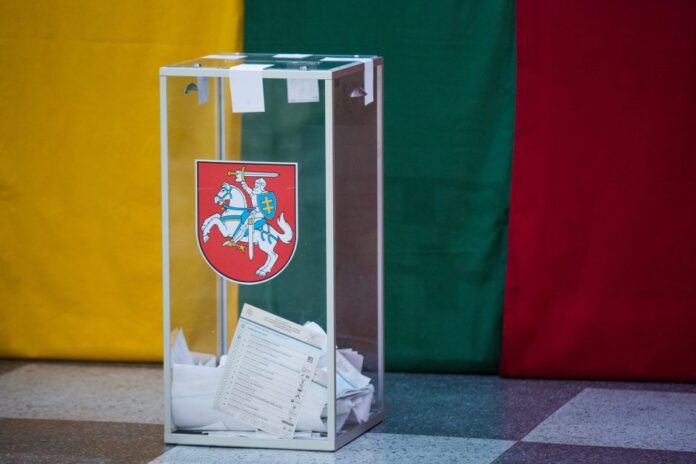
The Lithuanian parliament is considering a second referendum on legalizing dual citizenship. It will be debated in parliament on May 18. Sixty MPs have proposed holding a second referendum on dual citizenship in May 2024, alongside a presidential election. LRT.lt reports that Lithuanian-Americans are feeling both hopeful and resigned. The decades-long effort to solve the issue has so far led to little progress.
Many first-generation Lithuanian migrants living in the United States face a dilemma: if they want to become American citizens, they will lose their Lithuanian passport. Many émigrés find it very painful, because they were born in Lithuania and feel they are being forced to lose their LT citizenship as a birthright. The Lithuanian constitution states that “except in the cases provided for by law, no one may be both a citizen of the Republic of Lithuania and a citizen of another state”. The Constitutional Court’s interpretation of the article is that it precludes dual citizenship as a matter of course – the exceptions include citizenship granted for special merits or children of mixed families – and the rule can only be changed via a referendum.
Many Lithuanians emigrated to other countries for better work opportunities and better-paying jobs after Lithuania declared independence, and travel to other parts of Europe became easier after it joined the European Union. Over 30 years later, either they or their adult children may now wish to return to Lithuania – back to their homeland, where the standard of living has also improved.
The Baltic Times writes that Lithuania’s population will decrease by one-third, to 1.78 million people, by 2100, according to the latest population projections issued by Eurostat. Lithuania is currently home to 2.81 million people, based on the latest census data. According to the projections, Lithuania’s population will decrease to 2 million people by 2070 and will shrink further, to 1.85 million people, by 2085.
Although immigration to Lithuania has increased recently, a large number of immigrants are not of Lithuanian descent. In early 2023, there were 189,400 foreign immigrants in Lithuania, mostly from Ukraine (94,800.), Belarus (48,800) and Russia (15,700). About 2,000 immigrants came from each of Kyrgyzstan and Uzbekistan, about 1400 from India and Tajikistan. Over the past five years, at the number of citizens from other countries has doubled, with at least 100,000 having settled in Lithuania.
Many Lithuanians who settled abroad are giving up on the possibility of retaining their Lithuanian citizenship after the last referendum to change the constitution failed in 2019. While most voters supported dual citizenship, the total turnout was too low to make the results valid.
The issue is a sensitive one in Lithuania. Detractors of the referendum (and the right to dual citizenship) point to the failure of the one held in 2019 and to the millions of euros it will cost to enact another one. Others insist that dual citizenship erodes the true meaning of Lithuanian identity, or the definition of of citizenship, which should not be confused with feelings of patriotism. As both a right and a responsibility, it is argued that someone who lives as a citizen of one country cannot fulfill their civic duty to the other, for example, in the area of taxation, or possible conscription. Some offer a second “type” of citizenship, which would have dual citizens declare their income to the other country and pay a citizenship fee. They would have most of the same rights as citizens, but would not be permitted to vote. Of the roughly half-million Lithuanians who emigrated, only about 20,000 having the right to vote did so.



























